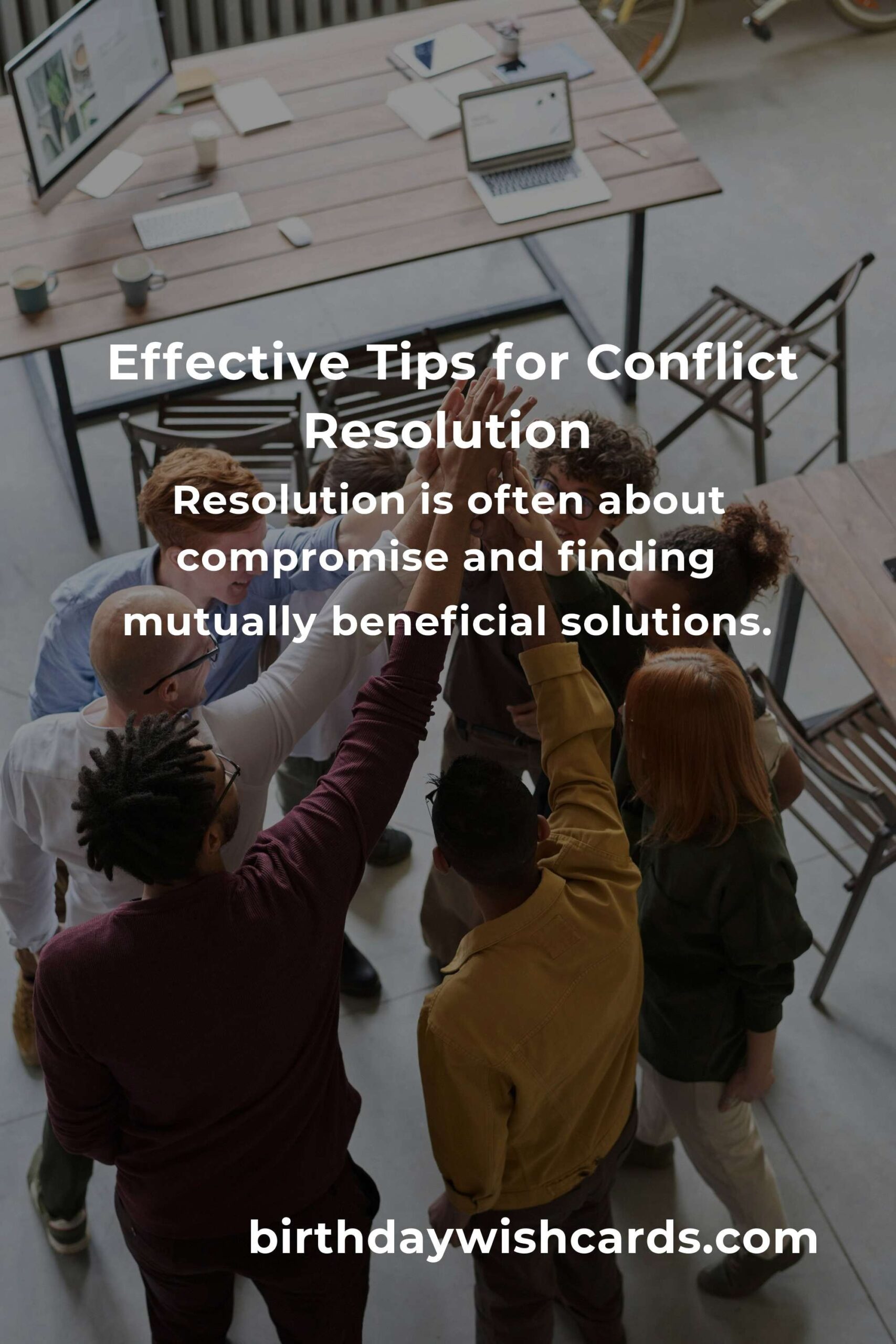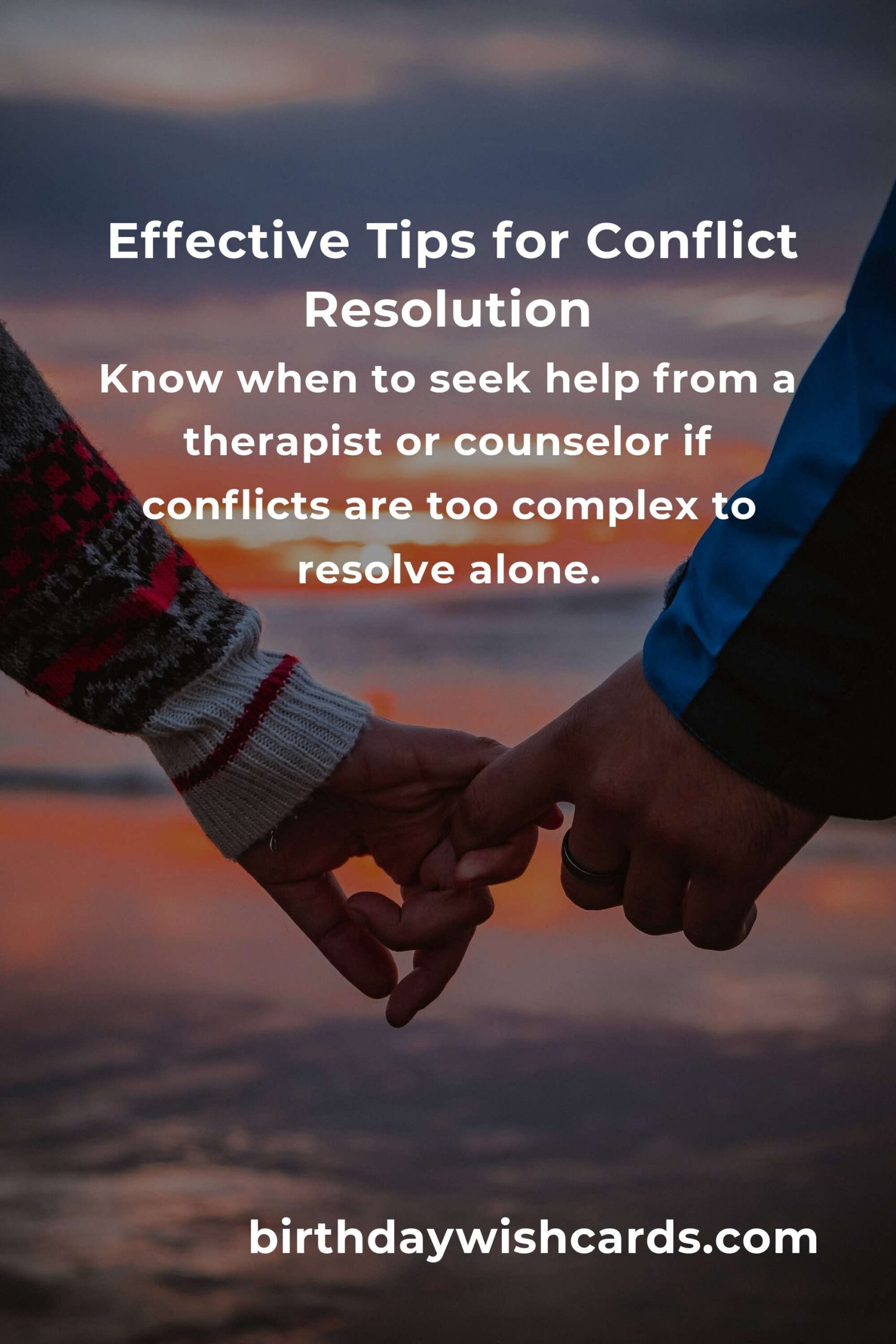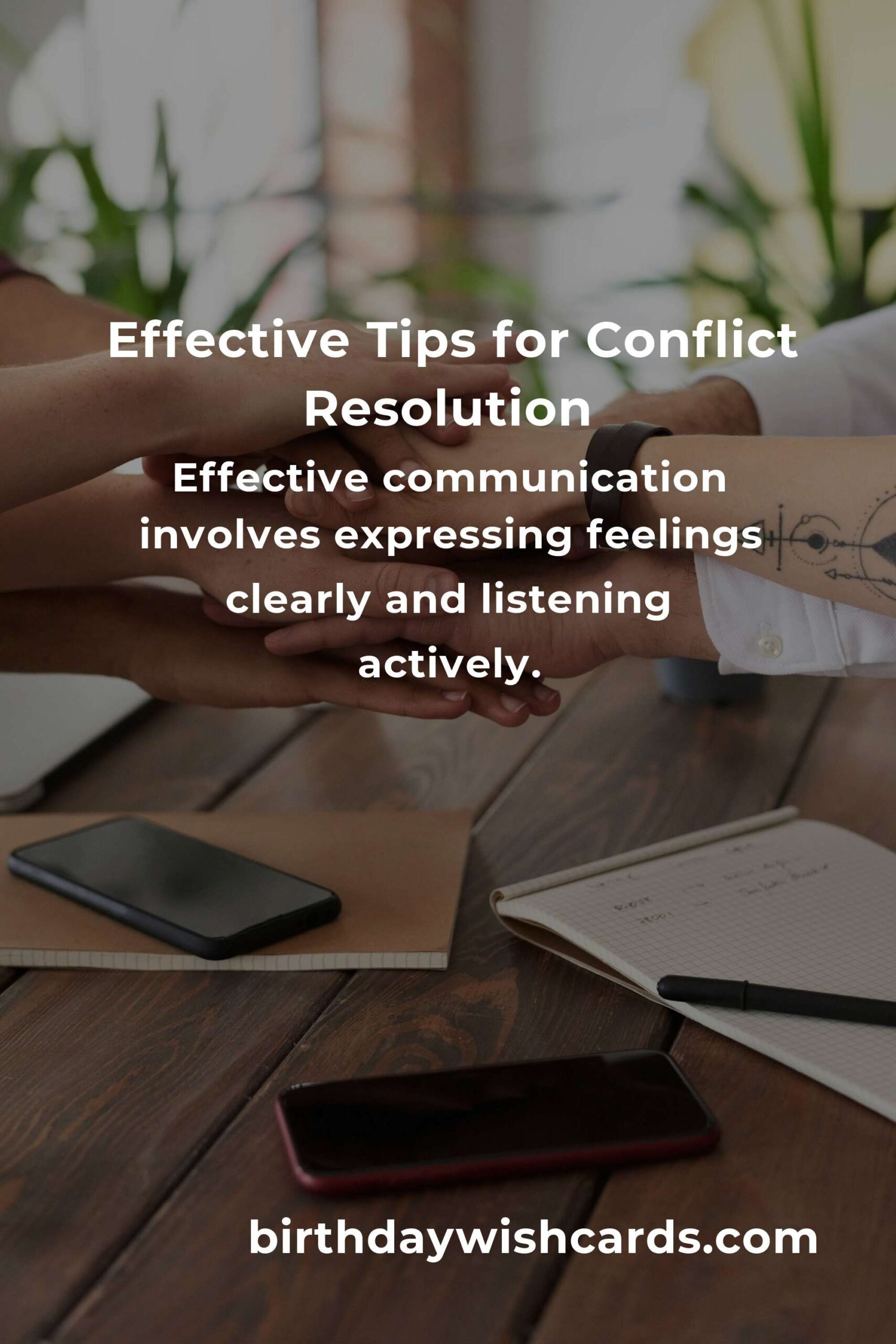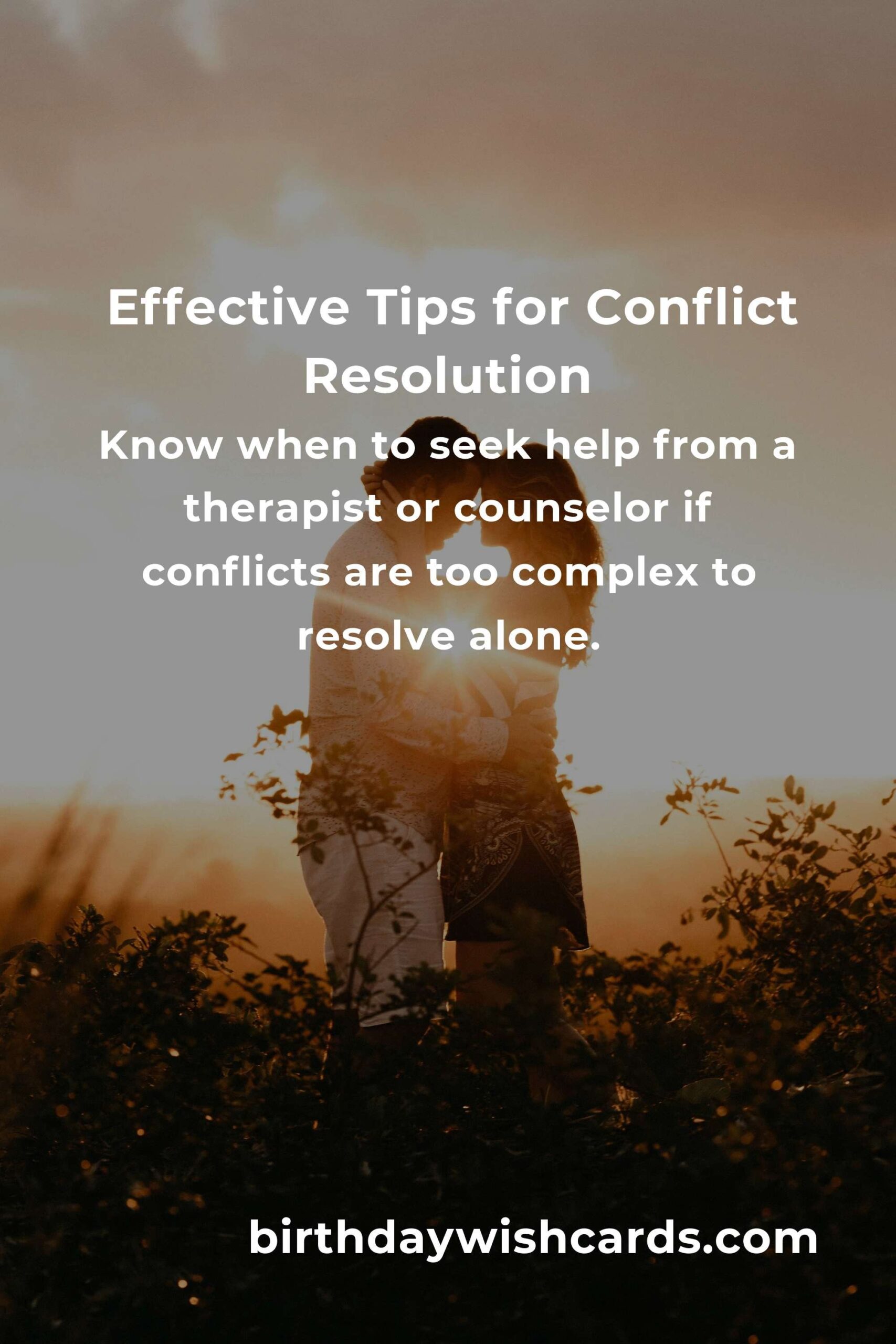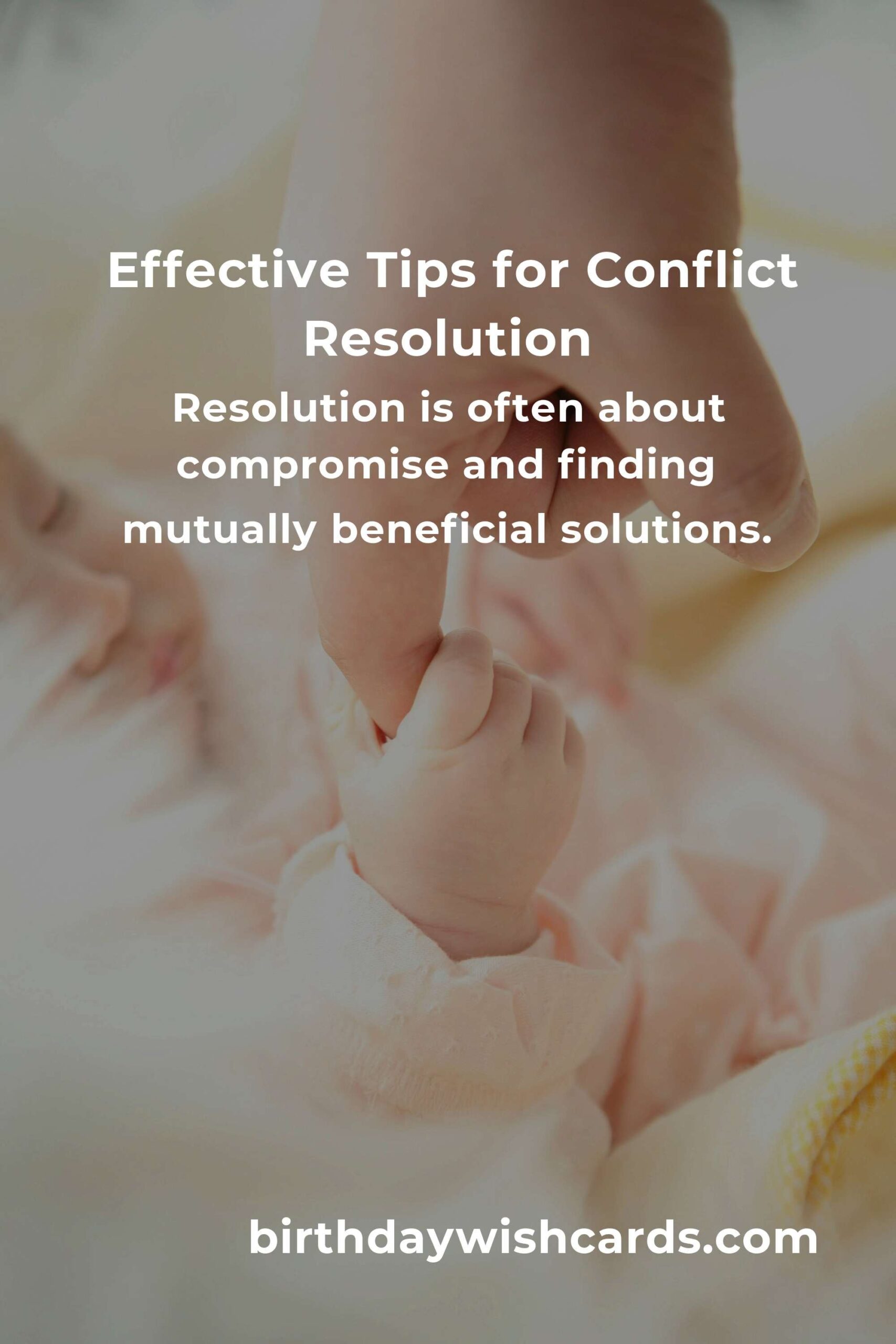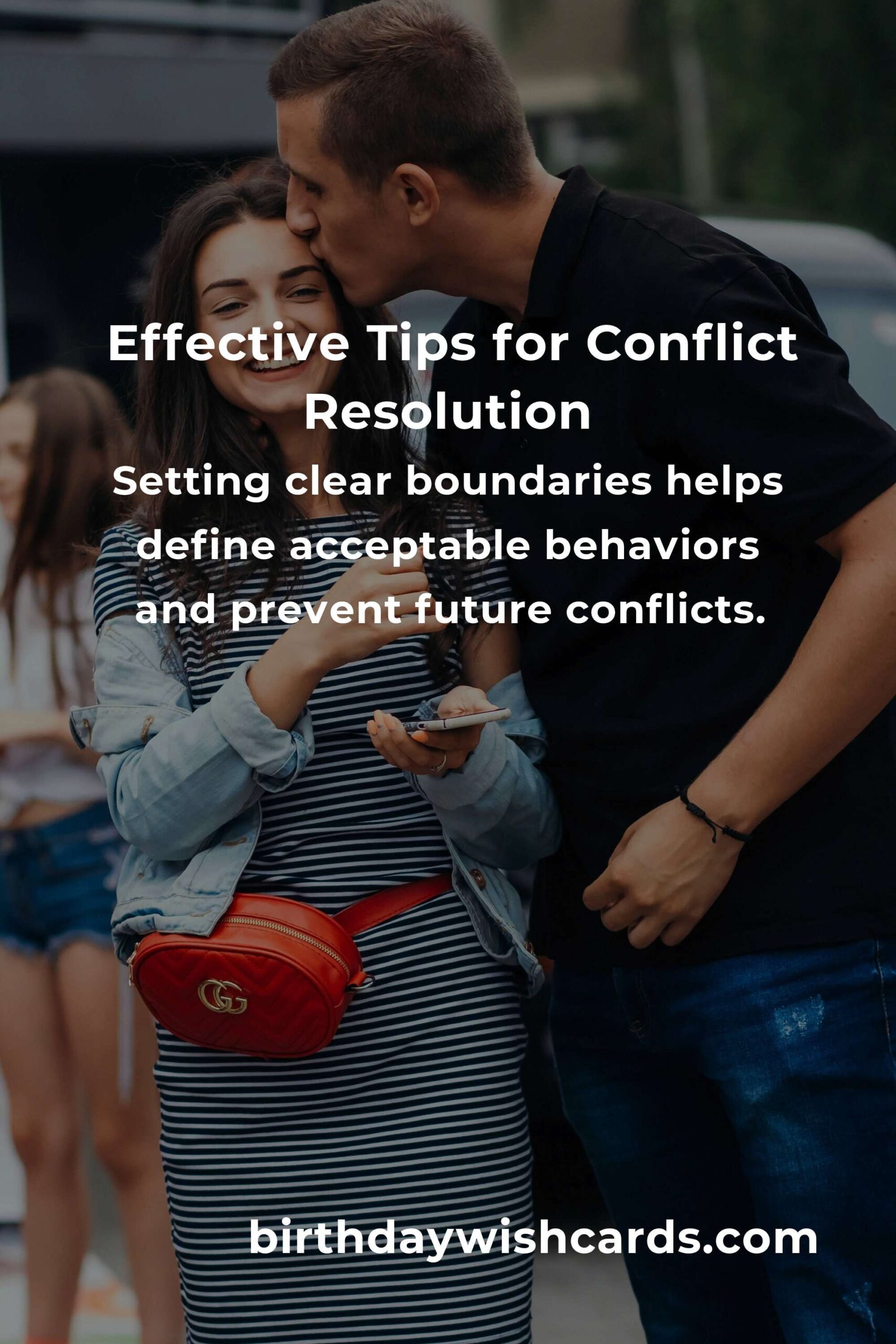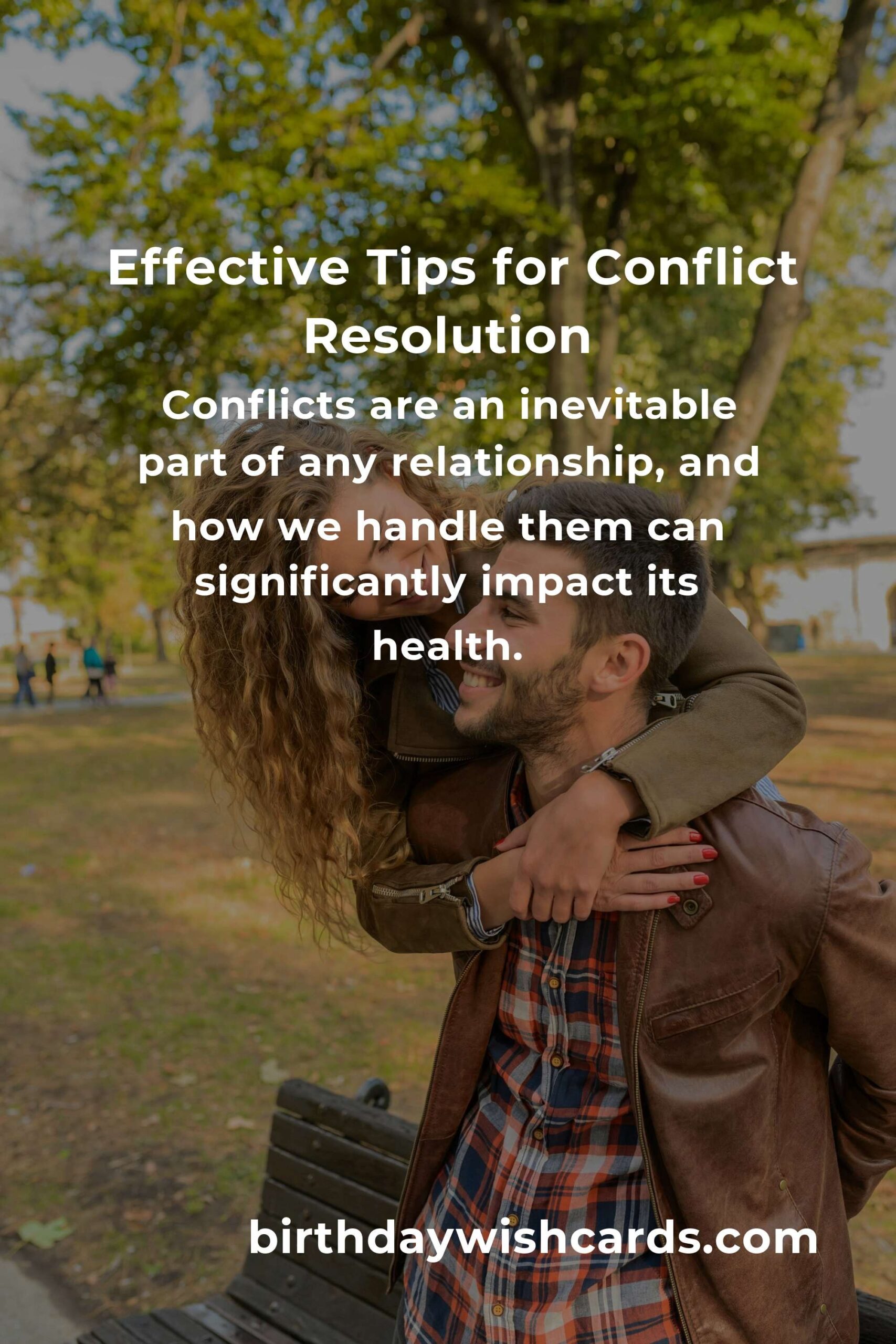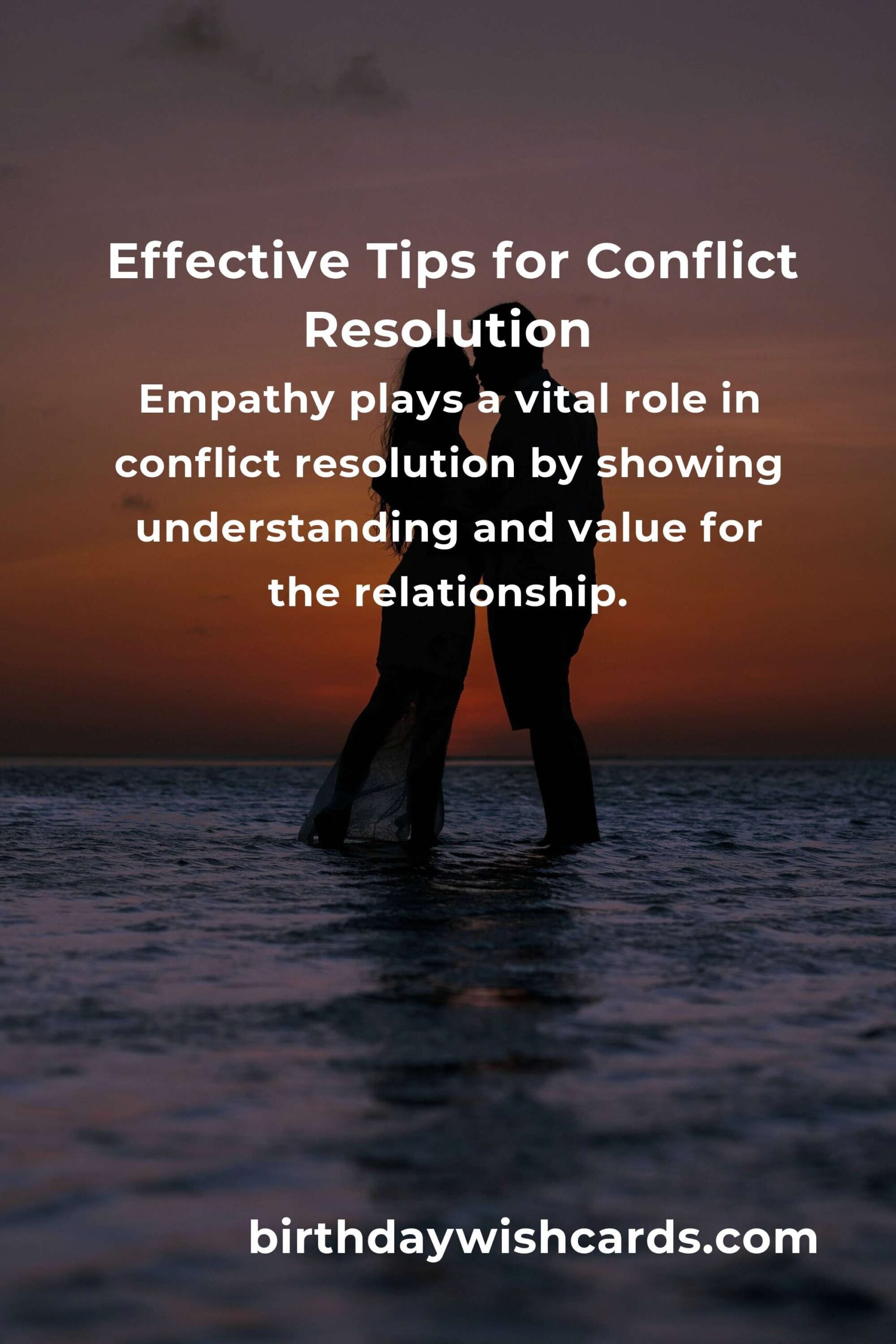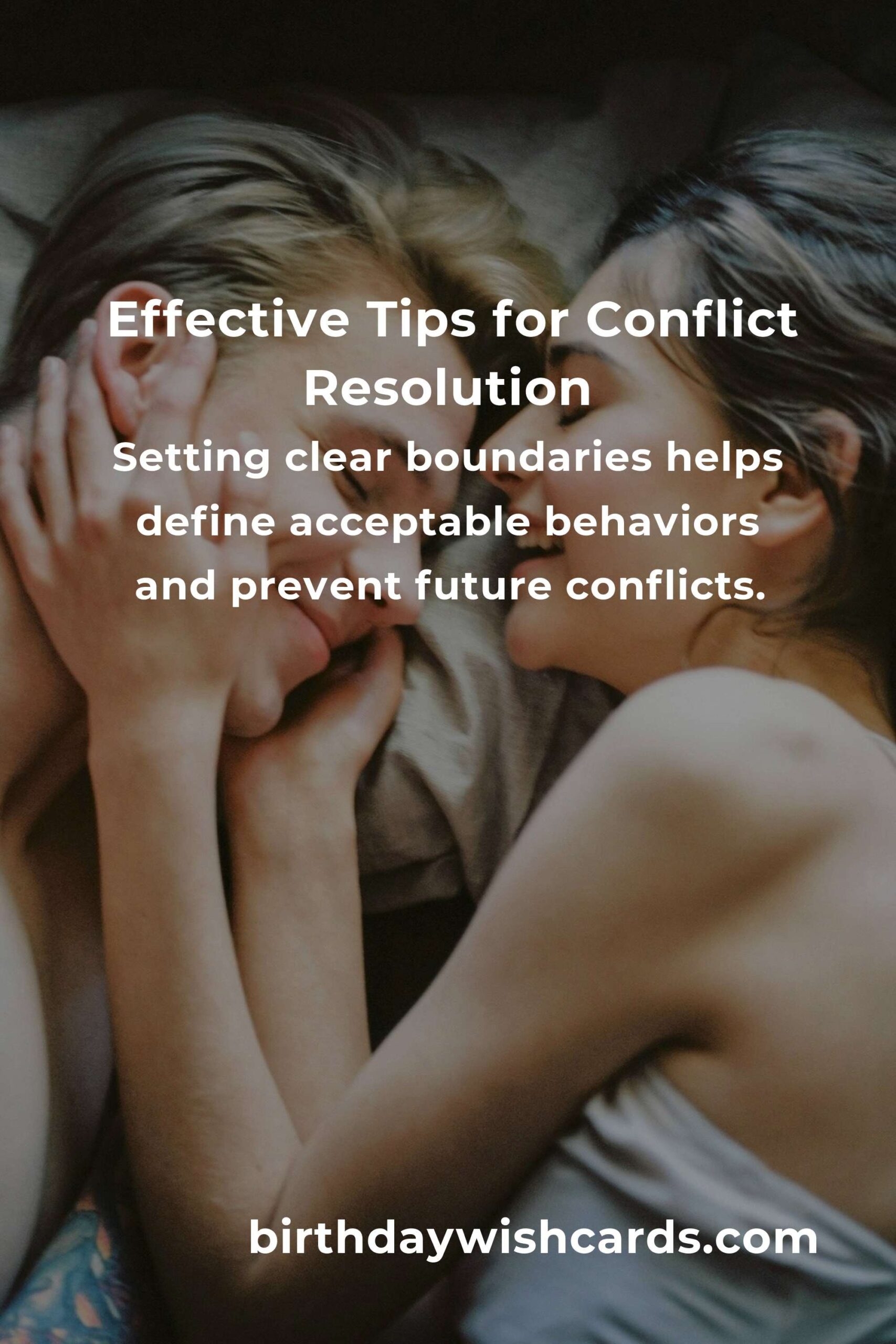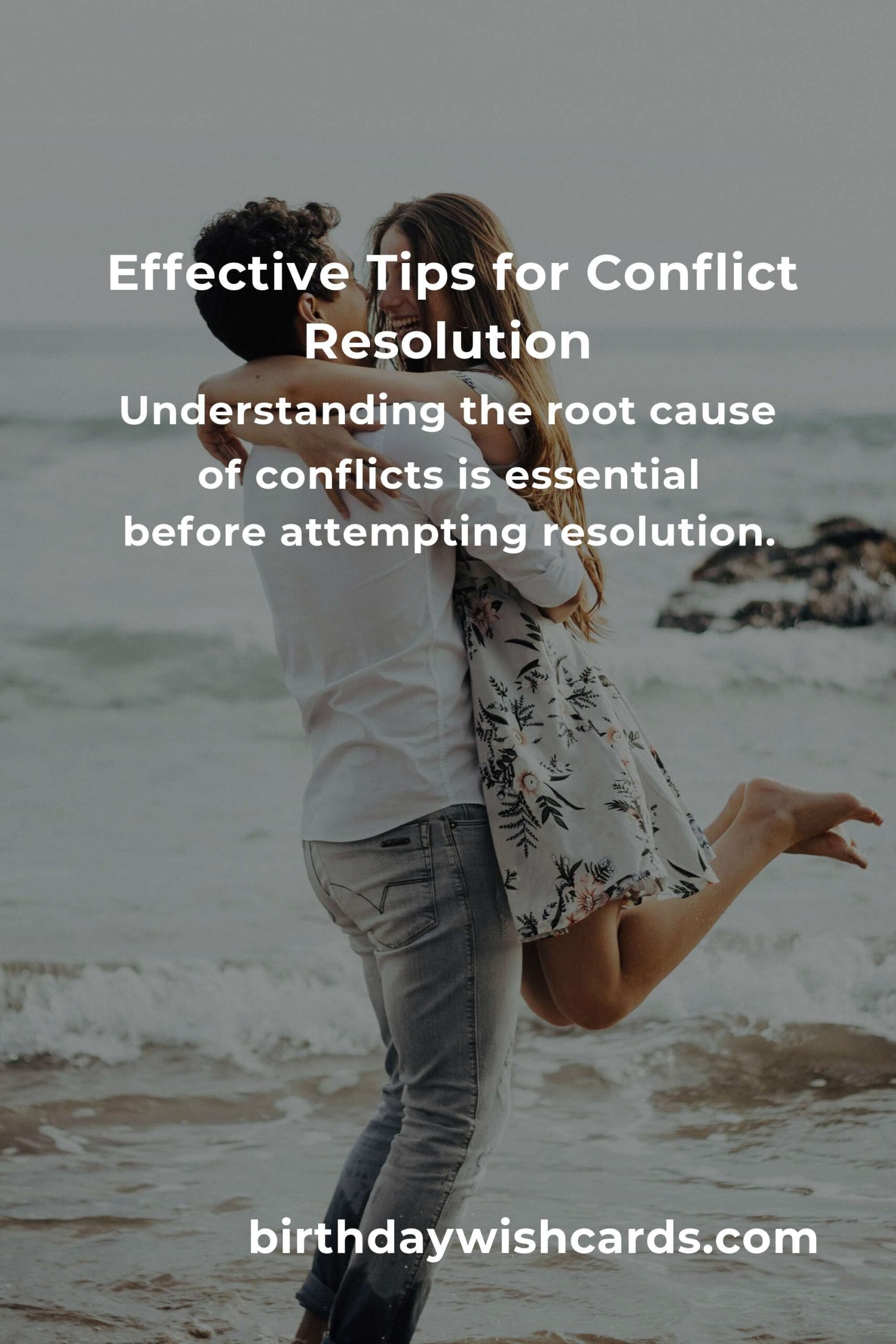
Conflicts are an inevitable part of any relationship. Whether it’s with a partner, a family member, or a friend, disagreements can arise from time to time. However, the way we handle these conflicts can significantly impact the health and longevity of our relationships. In this article, we will explore effective tips for resolving conflicts and maintaining harmony in your relationships.
Understanding the Root Cause of Conflicts
Before attempting to resolve a conflict, it’s essential to understand its root cause. Often, conflicts arise from misunderstandings, unmet needs, or differing values and expectations. By identifying the underlying issues, you can address the real problem rather than just the symptoms.
Take time to reflect on the situation and consider what might be causing the disagreement. Are there any unmet needs or unspoken expectations? Open and honest communication is key to uncovering these underlying issues.
Effective Communication is Key
Communication is the cornerstone of any healthy relationship. To resolve conflicts effectively, it’s crucial to communicate openly and honestly. This means expressing your feelings and needs clearly while also being willing to listen to the other person’s perspective.
Practice active listening, which involves paying full attention to the speaker, making eye contact, and avoiding interruptions. Reflect back what you’ve heard to ensure understanding and show empathy towards the other person’s feelings.
Practice Empathy and Understanding
Empathy plays a vital role in conflict resolution. It involves putting yourself in the other person’s shoes and trying to understand their feelings and perspective. By showing empathy, you demonstrate that you value the relationship and are willing to work towards a resolution.
When both parties feel understood and valued, it’s easier to find common ground and reach a compromise that satisfies everyone involved.
Set Clear Boundaries
Setting clear boundaries is essential in any relationship. Boundaries help define acceptable behaviors and protect each person’s needs and values. When discussing conflicts, it’s important to communicate your boundaries clearly and respectfully.
Be specific about what behaviors are unacceptable and explain why they are important to you. Mutual respect for each other’s boundaries can prevent future conflicts and strengthen the relationship.
Seek Compromise and Solutions
Resolution is often more about compromise than winning or losing. Both parties should be willing to give a little to reach a mutually beneficial solution. Focus on finding solutions that address the needs of both parties rather than insisting on getting your way.
Brainstorm together to find creative solutions and be open to suggestions. Remember, the goal is to strengthen the relationship, not to compete against each other.
Know When to Seek Help
Sometimes, conflicts can be too complex or emotionally charged to resolve on your own. In such cases, seeking help from a neutral third party, such as a therapist or counselor, can be beneficial. Professional guidance can provide new perspectives and tools to help navigate difficult situations.
Don’t hesitate to seek help if needed, as it shows a commitment to the relationship and a willingness to work through challenges together.
Conclusion
Resolving conflicts in relationships requires patience, understanding, and effective communication. By addressing the root causes, practicing empathy, and finding compromises, you can navigate disagreements and build stronger, healthier relationships. Remember, conflicts are opportunities for growth and deeper connection when handled constructively.
Conflicts are an inevitable part of any relationship, and how we handle them can significantly impact its health. Understanding the root cause of conflicts is essential before attempting resolution. Effective communication involves expressing feelings clearly and listening actively. Empathy plays a vital role in conflict resolution by showing understanding and value for the relationship. Setting clear boundaries helps define acceptable behaviors and prevent future conflicts. Resolution is often about compromise and finding mutually beneficial solutions. Know when to seek help from a therapist or counselor if conflicts are too complex to resolve alone.
#RelationshipTips #ConflictResolution #HealthyCommunication #Empathy #Boundaries

